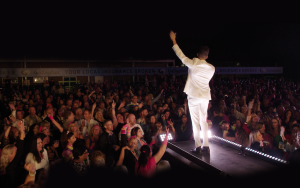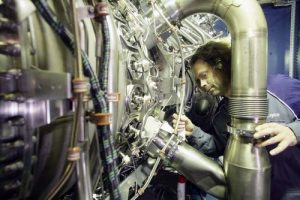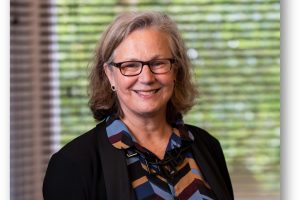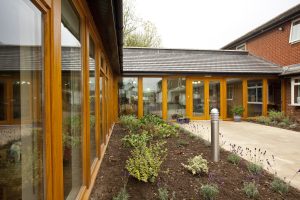‘The world has changed so much, yet so little, since the 1972 Ugandan Refugee Crisis’
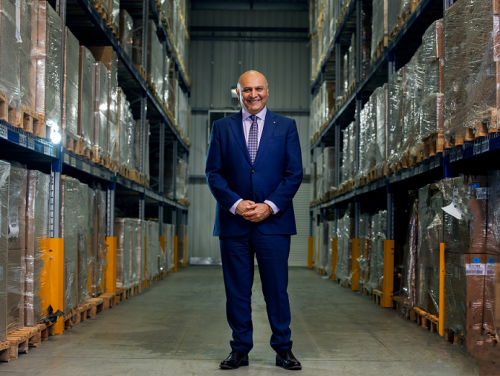
By Dr Nik Kotecha OBE DL, chairman of Morningside Pharmaceuticals and the Randal Charitable Foundation.
One hopes that the mistakes of the past are learned from and our history’s darkest moments are never repeated again.
Sadly, the War in Ukraine and recent conflicts in the Middle East and East Africa have once more led to millions of people becoming displaced and refugees, through no fault of their own.
As a child refugee myself during the 1972 Reign of Terror of then dictator of Uganda, Idi Amin; I can still vividly remember the panic in my parents’ eyes as the country’s Asian minority were given just 90 days to flee, or suffer the most terrible of consequences.
As we mark the 50th anniversary of the Expulsion of the Ugandan Asians, I can’t help but see parallels with the dreadful scenes of Ukrainian families clutching but a handful of belongings as they escape their homeland, but at a terrible cost.
My family found themselves in a similar situation, having fled Uganda for the United Kingdom; we established a new home in a temporarily refugee camp just outside of London.
We left with just two suitcases, which were all we could carry. Everything else – all of our worldly possessions – including our house, car and sentimental family heirlooms, were left behind to be pawed over as spoils of victory by Amin’s terrible regime.
So I know what it feels like to be homeless and I know what it feels like to go hungry, which is something no child should ever have to experience.
Despite my sadness at the wretched scenes coming out of Ukraine, there still is hope, and it is hope that often guides us through our darkest of times.
During my family’s struggles we were bowled over by the kindness of the British people and the UK Government who re-housed us in Leicester, which would become home to more than 40,000 displaced East African Asians by the late 1970s.
We were also immensely grateful for the help we received from the International Red Cross and other Aid organizations, which played a pivotal role in ensuring that our family were able to stay together during the chaos of August 1972.
Throughout my childhood, my parents forged a living where they could, and although our lives were very humble, we felt immense gratitude for the safety and services, such as good schools and education, provided by the state.
Looking back, it’s very much the case that the new arrivals have helped deliver economic and cultural prosperity to Leicester and other towns and cities where they settled.
Five decades on and Leicester is seen as the architype for how places can flourish by nurturing and celebrating diversity, ethnicity and inclusivity. This is vividly illustrated every year when the annual Diwali Celebrations are now heralded as the largest outside of India. They take place along the so-called Golden Mile, which ironically was the epicentre of the former slum districts of Leicester, where many Ugandan Asian families would settle.
The Ugandan Asians were a harmonious mixture of faiths and came to the UK already aware of English customs. They also came here highly educated and skilled, with good community connections, which would give rise to a new generation of successful entrepreneurs.
For my part, I was forever changed that fateful year when my family lost everything, but thankfully we still had each other. The lessons I learnt as a young child have stayed with me always and were central to the founding mission for my company Morningside Pharmaceuticals, which is “making quality healthcare an affordable and accessible reality throughout the world.”
More recently my charitable foundation, the Randal Charitable Foundation, has been able to directly save and significantly improve hundreds of thousands of lives through its work in the UK and globally, many of which have been people who find themselves in severe life-threating hardship through no fault of their own.
Despite the depressing parallels with the 1972 Ugandan Refugee Crisis and the current war in Ukraine, there have also been many heart-warming moments. The humanitarian response from global governments and the more than 150,000 UK households that expressed an interest in hosting a Ukrainian family, being just two that stand out.
My hope is now that the more than 8 million Ukrainian refugees and estimated 25 million who have been displaced, continue to receive the same support, which enabled the Ugandan Asians to thrive and give so much back, against all odds.
My head tells me this won’t be the last refugee crisis, and my heart tell me the UK and its people will stand ready to help if and when they’re needed.

